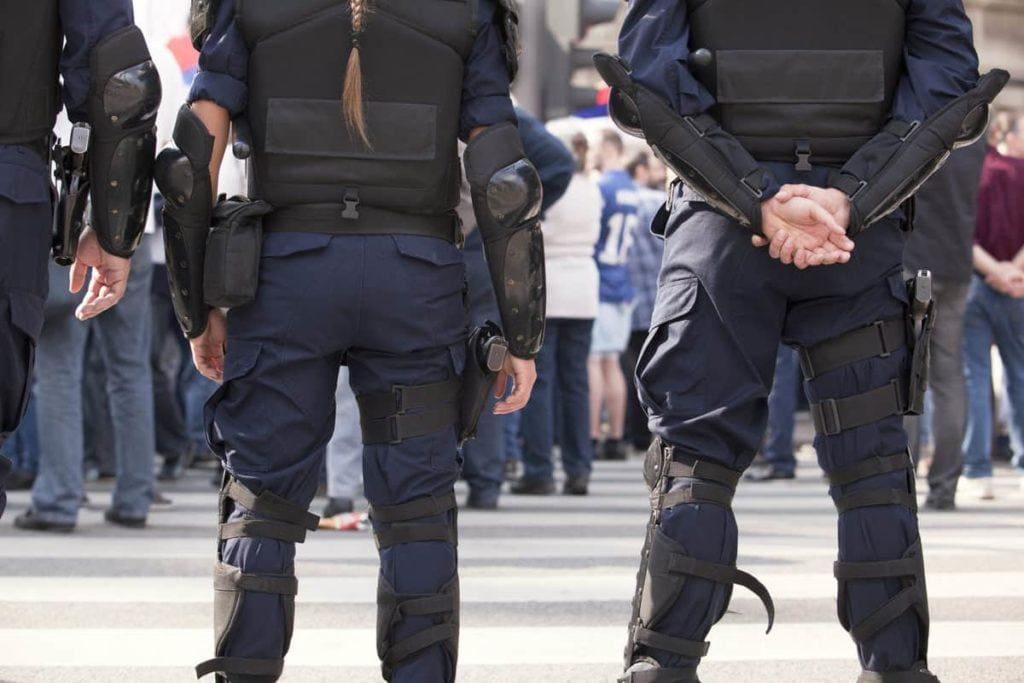The Case for a State Terrorist Offender Registry

Since the 1990s convicted sex offenders in America have been required to register with their local sheriff so that law enforcement can be aware of their residence. Since being founded, the sex offender’s registry has spread to states from coast to coast with support from the federal government. It has worked very well.
It may shock some to learn that unlike sex offenders, neither the federal government nor state governments have a way to track convicted terrorists who are released from prison.
If someone tried and convicted on terrorism charges or material support for terrorism charges moved into your community, wouldn’t you want your local law enforcement authorities to know about it?
Dozens of convicts serving time in U.S. prisons for terrorism-related offenses are due to be released in the coming years. Almost all of these convicts are individuals who were tried and convicted of terrorism offenses since the September 11th, 2001 terrorist attacks.
Since 9/11, the federal government prosecuted about 400 jihadists. At least 61 individuals with terrorism-related convictions will be released from prison by 2024.
Most Americans would be shocked by how lenient federal sentences for terrorism and material support for terrorism are. While the worst terrorists may be imprisoned for life, because law enforcement’s priority is getting dangerous terrorists off the street before they launch attacks, most terror-related convicts serve an average sentence of just 13 years.
There is also significant evidence that for most convicted terrorists, time in prison only sharpens their commitment, and often allows them to make relationships and develop networks with other prisoners.
States have a sex-offender registry and other registries, such as arsonist registries, because the data suggests people who commit certain types of crimes are prone to commit those crimes again.
The time has come for a similar registry for those offenders who have been convicted of terrorism offenses.
U.S. Sentencing Commission numbers show the recidivism rate for federal prisoners is 44.7 percent after five years, while the rate for state prisoners is 76.6 percent. In 2010, the Office of the Director of National Intelligence estimated about 20 percent of former Guantanamo Bay detainees returned to jihad.
What that means is that a person sent to prison on material support for terrorism charges for sending money to Al Shabaab, HAMAS, Hezbollah, ISIS or Al Qaeda may very well emerge in a few years a more hardened terrorist than he was when he entered prison.
In recent years both Britain and France have faced attacks from previously convicted terrorists released after completion of their sentences. Both countries already have far tighter surveillance on released terror convicts than is available in the United States.
Fortunately, there is a movement to create these commonsense tools. Legislation was recently passed in Louisiana and is being introduced in multiple other states this year that requires terrorist convicts to register with their local sheriff- in much the same way that sex offenders have done for decades.
The groundbreaking Louisiana law further requires the establishment of an alert flag that would be visible and accessible to law enforcement agencies and peace officers when they access the criminal history record information of each person required to register pursuant to the law.
In other words, a police officer on a call will be able to search the terrorist registry but will also be alerted if he comes across a name or address listed on the registry. So, police officers will know if they are about to have to deal with a potentially dangerous convicted terrorist.
Perhaps the best part: the cost associated with creating this registry came to a total of just $165,000 over five years, money well spent.
Many people have legitimate concerns about how the term “domestic terrorism” has been used, sometimes quite irresponsibly, in the media. It is essential to understand what a terrorist offender registry is and what it is NOT.
To reiterate, only those individuals who have been tried and convicted of terrorism will be required to register with local law enforcement. The registry does not apply to anyone “labeled” a terrorist. It does not create or allow anyone to be placed on a terrorism “watch list.” Nor would anyone acquitted in court of a terrorism charge after being arrested be included.
If you have concerns about the way the federal government is handling terrorism issues, it becomes even more important to support state and local law enforcement -the sworn peace officers who live and work alongside you in your communities- with tools they need to keep you safe while respecting your liberties.
The new administration in Washington has largely taken its eye off the ball when it comes to the threat from jihadist terrorism. They have left it to the states to defuse the coming time bomb of terrorist convicts due to be released.
Let’s hope we will see more states establish terrorist offender registries in 2021.
- President Trump Takes a Much Needed Step on Fentanyl - December 15, 2025
- Texas leads the way against the Muslim Brotherhood - November 25, 2025
- Defender of Freedom: Senator Jay Collins - August 4, 2025
